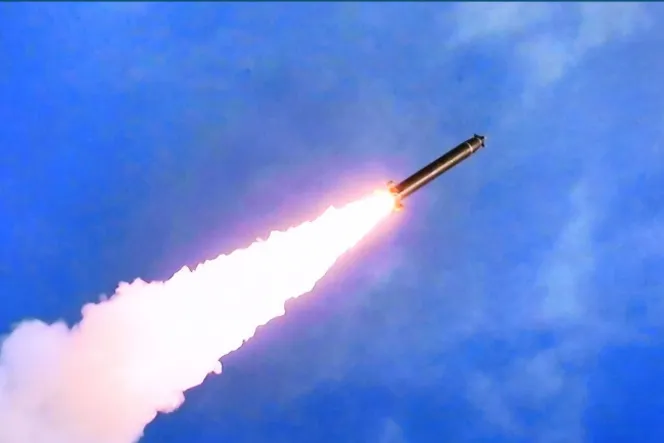 This piece is part of the series, 25 Years Since Pokhran II: Reviewing India’s Nuclear Odyssey
This piece is part of the series, 25 Years Since Pokhran II: Reviewing India’s Nuclear Odyssey
The 1998 Pokhran Nuclear tests had raised quite a stir globally and most critics were of the
opinion that the tests will have an impact on the security and stability of not only South Asia, but also the larger Asia-Pacific region (which is now referred to as the Indo-Pacific) and the world at large. It is well known that there were strong responses to the 1998 nuclear tests from countries like the United States (US), China, European countries, amongst others, but there were also strong statements issued and measures taken by countries like Japan, the Republic of Korea (RoK), Australia, New Zealand, and Malaysia. These countries who are now considered significant like-minded partner countries are working with India to ensure a free, open, secure and stable Indo-Pacific today.
The two countries are almost polar opposites when it comes to nuclear weapons and nuclear energy—as matters of national policy, and even, as a matter of national political identities.”
Reactions and responses of key countries in the Indo-Pacific
Japan
India’s bilateral relationship with countries like Japan and Australia had hit a nadir after the 1998 nuclear tests. After India’s economic reform in the early 1990s, there were signs of improvement in the India-Japan ties and, by 1998, the economic ties were clearly taking off. The Foreign Direct Investment (FDI) commitment in 1997
reached a peak of US$531.5 million; Japanese companies like Toyota, Honda, Sony, Mitsubishi, Matsushita, Fujitsu, and YKK were
establishing their presence in India. Japan’s Ministry of International Trade and Industry (MITI) was actively engaged in fostering a strong economic partnership with India. But the nuclear tests of 1998 did put a strain in this budding relationship. Analysts have
pointed out, “There is only one problem in considering the possibility of a truly profound strategic partnership between India and Japan and that is the nuclear issue. The two countries are almost polar opposites when it comes to nuclear weapons and nuclear energy—as matters of national policy, and even, as a matter of national political identities.”
After India conducted the nuclear tests in 1998, Japan not only issued some strong statements, but also imposed economic sanctions. The statement issued by Japan
read, “It is extremely regrettable that India conducted two more nuclear tests on May 13, 1998. Taking this situation very seriously, the Government of Japan has reiterated its strong demand to India that nuclear testing and development of nuclear weapons be stopped.” Additionally, at the Disarmament Conference held by the United Nations on May 15, 1998, the Japanese official had
stated, “Words were not sufficient to express the shock of the Japanese Government and people over India's nuclear tests. It was said that the explosions completed a series of tests, but the damage they caused and their ultimate effects on the goals of international disarmament were immeasurable.”
After India conducted the nuclear tests in 1998, Japan not only issued some strong statements, but also imposed economic sanctions.
Besides this, Japan had also
imposed some curbs, which were mostly economic, that included: a) Grant aid to India for new projects were frozen, except for emergency and humanitarian aid and Grant Assistance for Grassroots Projects; b) Yen-loan to India for new projects were frozen as well; and c) The Japanese Government was cautiously examining the loan programmes to India by multinational development banks and international financial institutions.
These economic measures were discontinued by Japan in 2001, as Tokyo
recognised that India was “maintaining its moratoria on further nuclear tests and had also declared its intention to maintain the same. Furthermore, India had also stated that it will ensure strict controls of nuclear- and missile-related goods and technologies.” Additionally, it was
stressed from the Japanese end that, “It is imperative for Japan to strengthen its positive engagement with India and that India is expected to play an important role in tackling terrorism and in enhancing stability in the Southwest Asia region.”
Australia
The Australian government had strongly condemned the nuclear tests conducted by India. It had
described the tests as “outrageous acts—as an ill-judged step which could have most damaging consequences for security in South Asia and globally. It urged India to cease all further testing; to sign the Comprehensive Test Ban Treaty (CTBT) without delay; and to join the international nuclear non-proliferation regime.” Furthermore, at the Disarmament Conference held by the United Nations on May 15, 1998, the Australian representative, John Campbell, had
stated, “Australia could only conclude that this was the act of a Government that had the utmost disregard for accepted international norms of behaviour. India's actions were a slap in the face to the overwhelming majority of the international community determined to work towards the goal of a nuclear weapon-free world.” Australia, at this time, also
started pressing for beginning negotiations on the need for a fissile material cut-off treaty to ensure transparency in India’s nuclear capabilities and intentions. Immediately after the nuclear tests, the then Australian Foreign Minister had also called the Indian High Commissioner to put across the message that the Australian Government, “strongly condemns India’s nuclear tests”.
India's actions were a slap in the face to the overwhelming majority of the international community determined to work towards the goal of a nuclear weapon-free world.
Australia had imposed certain
measures as well. Unlike the US and Japan, Australia had not imposed any trade and investment sanctions. The measures taken were: a) suspension of bilateral defence relations with India and the withdrawal of Australia’s Defence Adviser stationed in New Delhi at that time; b) cancellation of ship and aircraft visits, officer exchanges and other defence-related visits; c) withdrawal of Australian Defence Force personnel training in India; d) requests for the immediate departure of three Indian defence personnel stationed at defence colleges in Australia; e) suspensionof non-humanitarian aid; and f) suspension of ministerial and senior official visits. In spite of these measures, Australia’s business in India had
not suffered and the Australian Department of Foreign Affairs
had continued its normal dialogue with its India counterpart.
The Republic of Korea
The Republic of Korea had not issued a harsh statement like its neighbour Japan, but was also not very welcoming of India’s nuclear tests. The Republic of Korea’s Ministry of Foreign Affairs had
expressed that, “his country was concerned over the nuclear tests conducted by India on May 11 and 13, 1998. Korea's Foreign Ministry had stated that the tests were all the more regrettable for coming at a time when international efforts to achieve a nuclear-weapons-free world had advanced with the adoption of the CTBT.”
Malaysia
The Malaysian Ministry of Foreign Affairs’ official statement
read, “The action by India was a serious setback to efforts to keep the region free of nuclear weapons. It also undermined the efforts of the international community towards attaining a complete ban on nuclear testing. Malaysia was particularly disappointed that India had taken such a step in the light of the overwhelming adoption of the CTBT.”
New Zealand
The New Zealand government had
removed its High Commissioner to India stationed in New Delhi after the tests and issued a
statement that, “New Zealand joined the many calls of other concerned countries urging India to make the commitment not to conduct any further tests. It also called on India to join the NPT and sign the CTBT as a matter of urgency.”
China’s growing assertiveness has led countries in the Indo-Pacific to rethink their defence and security policies as reflected in Australia’s recently released Defence Strategic Review and Japan’s National Security Strategy released in 2022.
Relations now
Given the generally negative reactions of key countries across the Indo-Pacific two-and-a-half decades ago, is the nuclear issue still a hindrance in India’s Indo-Pacific partnerships? Countries like Japan may still have concerns given that India is a non-signatory to the Nuclear Non-Proliferation Treaty (NPT), the Comprehensive Test-Ban Treaty (CTBT), and the Fissile Material Cut off Treaty (FMCT). But after the signing of the 123 Agreement with the United States and after India received a waiver in 2008 from the Nuclear Suppliers Group (NSG), this issue has in no way impacted India’s growing partnerships with like-minded countries in the Indo-Pacific region. India has
signed civil nuclear agreements with Japan, Australia, South Korea, and Vietnam. With Japan, India
signed the India-Japan Agreement for Cooperation in the Peaceful Uses of Nuclear Energy, which came into force in 2017. This agreement is aimed to
enable Japan to export nuclear power plant technology as well as provide finance for nuclear power plants in India. In 2015, India
concluded the civil nuclear agreement with Australia for being able to purchase uranium. This agreement rook place after five rounds of negotiation so that Australia could revise its policy on nuclear sales as India is a non-signatory to the NPT. With South Korea, India
signed a civil nuclear agreement in 2018 to provide a framework to allow Korean companies to participate in atomic power plant projects in India.
There is also the recognition that, given India shares land borders with nuclear-armed countries like Pakistan and China with whom relations currently are not cordial, it was imperative for India to conduct these tests and reach its ambitions to equip itself with nuclear capabilities. China’s growing assertiveness has led countries in the Indo-Pacific to rethink their defence and security policies as reflected in Australia’s recently released
Defence Strategic Review and Japan’s
National Security Strategy released in 2022. With several key countries in the Indo-Pacific such as Australia, Japan, and the Republic of Korea (RoK), India has elevated its bilateral relationship to a Comprehensive Strategic Partnership (CSP). India’s ‘No First Use’ (NFU) policy issued after the 1998 Pokhran nuclear tests and its generally positive non-proliferation record, has contributed to it developing strategic partnerships with countries in the Indo-Pacific.
Premesha Saha is a Fellow at the Strategic Studies Programme at the Observer Research Foundation
The views expressed above belong to the author(s). ORF research and analyses now available on Telegram! Click here to access our curated content — blogs, longforms and interviews.



 This piece is part of the series,
This piece is part of the series,  PREV
PREV


